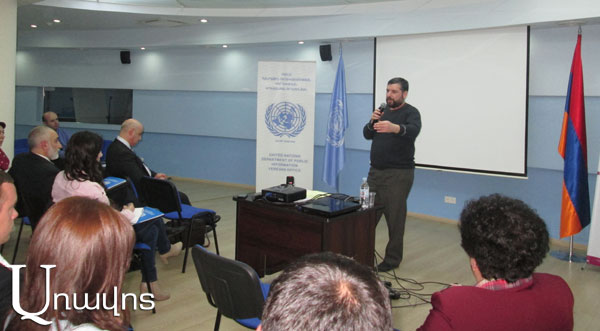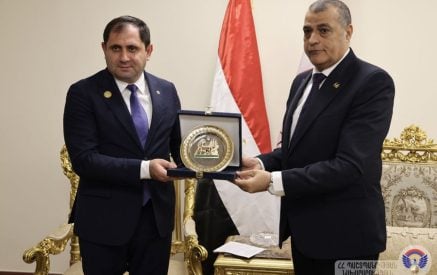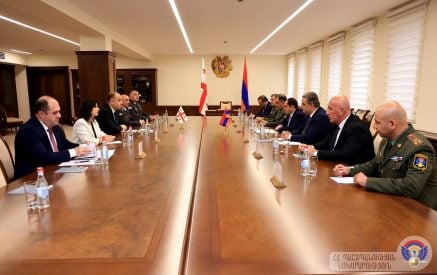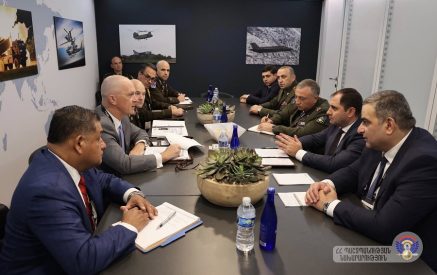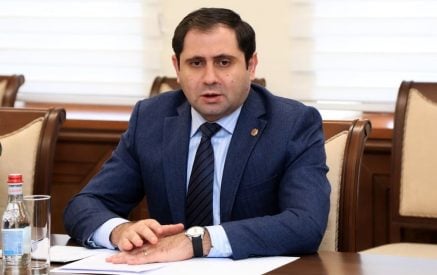“Information war or cyber war seems to be something new, but in fact, as long as the wars exist, the information component always exists,” so announced the Coordinator for “Razminfo” specialized news site, Karen Vrtanesyan, at the public discussion on the subject of Cybercrime organized at the UN Armenian Office. Referring to the Armenian-Azerbaijani information war, Mr. Vrtanesyan said, “What the Azerbaijanis do, their first target is not the soldier standing at the border, but they do this action to receive an information influence among the Armenian community. Purely in terms of the tactics, Azerbaijanis actions are illogical, as it does not take any posture. Hence, the message is primarily aimed at the Armenian community.”
Karen Vrtanesyan opines that the fact of disseminating false information is not mandatory in the cyber war, but the task is to disseminate such information that it creates the desired perceptions in the society.” Karen Vrtanesyan informed that it is possible to get many key information from the Internet even about such closed country like Azerbaijan, and detailed, “For example, we have found seven Azerbaijani serviceman deceased last year, which was concealed by the Azerbaijanis.” In Karen Vrtanesyan’s words, the cybercrimes are growing by years. He noted that even the expression CYBER TROOPS is circulated, where specialists are gathered who are working in the direction of cybercrimes. “In the 2008 Russian-Georgian war, all Georgian government websites came out of order. Such things happen in any conflict. Even the DDOS attacks have become fairly cheap.”
To the question of Aravot.am that in the information war, Armenia is always acting in the role of the respondent, so whether this is the right strategy, Karen Vrtanesyan replied, “Categorically, these assertions are made by the people who do not clearly understand the meaning of information conflict. Like the DA’s press releases, they want to receive a daily message from the information platform saying that so many opponent’s websites were broke and the opponent was pushed back. Many people visualize that information fight is to throw mud at each other. Whereas, breaking a website and putting the Armenian flag on it is not correct, actually, this site understands that there is a vulnerability.”
Tatev HARUTYUNYAN




















































